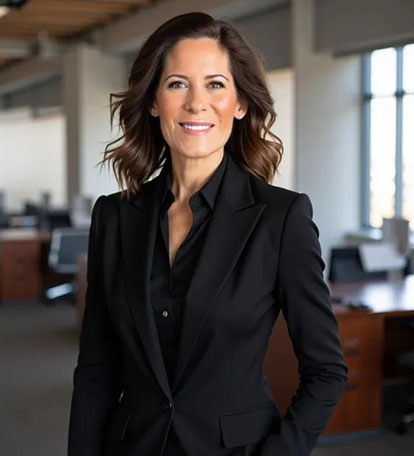Why Top 1% PI Attorneys Only Work with Settlement Counsel
The most successful firms have discovered that architected settlements™ create better outcomes, stronger client relationships, and superior case results.
The Critical Blind Spot:
Why Your Clients’ Futures May Be
Undermined
by
Conventional Settlement Practices
As a pre-eminent Personal Injury attorney, your commitment is to secure every advantage for your clients. Yet, in the nuanced realm of structured settlements, many firms unknowingly expose their clients—and their own hard-won reputations— to a significant conflict of interest inherent in the prevailing industry model.
External Conflict of Interest
- Traditional “settlement brokers” operate as insurance agents, not independent advisors
- Their compensation is commission-based, tied directly to specific annuity products
- This incentivizes transactional volume over meticulous long-term financial architecture
- Your client’s unique needs become secondary to broker profits
Internal Professional Unease
- Top 1% attorneys recognize the inherent conflict in commission-driven models
- Entrusting your client’s critical financial legacy to entities without fiduciary duty feels like compromise
- This creates persistent professional discomfort about comprehensive protection
- You're left questioning the true breadth of your advocacy
Philosophical Imperative
- Your clients rely on your firm for unwavering legal counsel
- Life-altering settlements should be shaped by dedicated legal experts, not sales approaches
- This is fundamentally at odds with true client advocacy
- The question becomes: legal precision vs. salesmanship for your client’s future
Our Solution to These Critical Conflicts
and Questions is:
The Architected Settlement™
Click to learn more about our innovative approach to protecting
your client’s legacy for life.
Meet Michele P. Fuller:
Your Unrivaled Guide in Architecting Client Futures

Empathy Born from Experience:
Ms. Fuller intimately understands the frustrations that arise when a commission-driven sales model overshadows genuine client advocacy. She recognizes the inherent conflict when a broker’s payout is prioritized over your client’s nuanced, long-term financial requirements.
Authority Forged by Distinction:
Michele P. Fuller brings to bear a formidable array of credentials and an unparalleled depth of experience in structured settlements. As a seasoned attorney, and founder of The Architected Settlement Law Group™, she operates strictly under a fiduciary duty, ensuring your client’s best interests are the singular driving force behind every recommendation.
Proven High-Stakes Experience:
- Special Assistant Attorney General for the $600 million Flint Water Case
- Fellow of the Academy of Court-Appointed Neutrals
- Co-counsel in the $13 million Hawthorn class action matter
- 2018 Unsung Hero Award from the State Bar of Michigan
- Consistently recognized by Super Lawyers since 2018
The Architected Settlement™ Process:

Analyze
We analyze your client’s specific needs and long-term goals

Architect
We design a custom settlement structure with legal precision

Advocate
We provide ongoing legal support throughout the client’s lifetime
Book a virtual meeting with Michele. Learn how she Architects Settlements™ for the Top 1%.
The Critical Crossroads:
What's At Stake When You Choose Brokers Over
Legal Counsel?
When You Choose Brokers

When brokers, driven by sales commissions, prioritize certain annuity products, your client’s settlement structure can become less efficient, potentially eroding the long-term value and flexibility of their financial security.
Brokers disappear after getting paidOnce their commission is secured, traditional brokers typically conclude their involvement, leaving your client without ongoing guidance or support as their financial needs and external circumstances evolve.
No legal protection or ongoing counselWithout the oversight of legal counsel, clients lack the crucial protections and advisory services necessary to navigate the complexities and potential pitfalls of managing a long-term structured settlement.
Your clients’ interests come second to broker profitsThe inherent conflict of interest in a sales-driven model means that the broker’s financial gain can, inadvertently or directly, take precedence over the nuanced and holistic financial interests of your client.
When You Choose Legal Counsel

Our approach prioritizes your client’s unique needs and long-term goals, designing customized settlement structures that are legally precise and optimized to yield the greatest benefit and protection over time.
Ongoing legal support and advocacyWe provide continuous legal support, acting as a steadfast resource for your client throughout their lifetime, ensuring their structured settlement remains robust and adaptable to their changing circumstances.
Fiduciary duty to your clientsAs legal professionals, we operate under a strict fiduciary duty, meaning our advice and actions are exclusively governed by your client’s best interests, ensuring ethical and legally sound decision-making at all times.
Your reputation protected by expert counselPartnering with specialized legal counsel reinforces your firm’s commitment to comprehensive client advocacy, safeguarding your professional reputation and enhancing trust through demonstrably superior, ethical outcomes.
Ready to Architect Your Client’s Future?
Schedule a 15-minute consultation to discuss your next case
The Architected Settlement Law Group™
Success Stories
“Michele's architected approach saved my client $200K over 20 years compared to what the broker proposed. My reputation with this family is solid for generations.”
— John Jenkins, Esq., New Haven, CT, Personal Injury Attorney
“I refer all my settlement cases to ASL now. The legal expertise and ongoing support is exactly what my clients need.”
— Susan Thompson, JD, Lansing, MI, Personal Injury Attorney
Click here to view more success stories.
Frequently Asked Questions
Q: What is the difference between a structured settlement attorney and a settlement broker? ▾
Q: How much do structured settlement brokers charge in commissions? ▾
Q: What does “architected settlement™” mean? ▾
Q: How long does the structured settlement process take? ▾
Q: Can structured settlements be modified after they’re established? ▾
Q: What is fiduciary duty in structured settlements? ▾
Q: Do I need an attorney for structured settlements? ▾
Q: What happens if a structured settlement company goes bankrupt? ▾
Q: How do structured settlements protect against malpractice claims? ▾
Q: What are the tax implications of structured settlements? ▾
Q: Why do top PI attorneys avoid using settlement brokers? ▾
Q: What questions should I ask a structured settlement provider? ▾
Q: How do I know if my client needs a structured settlement? ▾
Q: How is Michele different than a settlement consultant? ▾
Q: Can structured settlements be used for minors and special needs clients? ▾
This is Where the Rubber Meets the Road
For Top 1% Trial Attorneys, Winning the Verdict is Only the First Step
The final, most critical step is ensuring that recovery delivers on its promise of justice-a promise that is broken the moment those funds are mismanaged or lost.
At The Architected Settlement Law Group,™ we use a surgeon's precision to provide 'Your Blueprint Beyond the Gavel.' We architect a legal plan that secures the financial recovery for life, shielding both you and the firm from liability and proving to your client that you were the one who delivered not just money, but lasting justice.
Don't let the final step compromise everything you've achieved.

